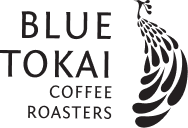Welcome to our interview series with our growers. We loved meeting the people we buy our coffee beans from and thought that you’d like to learn more about them as well. In this Q and A, we speak with Hamsini Appadurai, the Chief Marketing Officer at Sangameshwar Estates in Karnataka’s Bilgiriranga Hills. Sangameshwar provides us with our popular Attikan coffee. In our chat with her, Hamsini talks to us about what single origin coffee really means and the time she spent with her husband, Appadurai, developing Sangameshwar’s coffee into arguably some of the best speciality coffee grown in India.

Hamsini with her daughter
Q: How did Sangameshwar Coffee Estate get started?
A: Our farms were initially comprised of Karadykan, Kondadkan and Gung giri and were started in the 1900s by Charles Crawford and his brother, William Crawford. They were then acquired by Appadurai’s grandfather after independence. Attikan was started by Randolph Morris and his son, Eric Morris, and we acquired it in 1960 under a separate company called Attikan (Biligiri) Limited. In 1981, both these companies were merged together to form Sangameshwar Coffee Estates Ltd.

Photo: The panoramic view of Karadykan. (Source: Blue Tokai Coffee Roasters)
Q; How did you and Appadurai get involved in the coffee estates owned by his family?
A: Appadurai trained for 2 years in Ossoor Estate, which was then part of our group. He then left to study for his masters and got involved in coffee again in 1997. KS Vaidyanathan, his grandfather and the founder of Sangameshwar, was getting old and he wanted the younger generation to work and get involved on the estates. So we moved to Karadykan and stayed there until 2001. For four years, we lived on the estate, quite unimaginable for many people today.
Q: What was that experience of living on the coffee estate like for you?
A: At that time, we didn’t have mobile phones and if it rained, we would be left without a telephone connection as well. The technology boom had not happened then and so we would be cut off from the outside world for many days. Until then no one in our family had lived on the estate. We had estate managers who lived there and we’d go to visit maybe once in three or four months. It was when we actually moved to the estate that we really started to learn and understand it.
There were parts of the estate that couldn’t be accessed during the monsoon because there’s a stream that flows really heavily through Karadykhan during those months. The drying yard was much much smaller, which we realized that we had to expand because we couldn’t dry all the coffee. It was at that point that we really started looking into the process of specialty coffee. Until then no one had really looked into details like picking each field separately, looking at the maturing process of specialty coffee, looking at all of this in greater detail.

A stream running through Karadykan (Source: Blue Tokai Coffee Roasters)
Earlier we had to give all our coffee to the Coffee Board. The pickers would pick all our coffee, bulk it together and that was that. There was no free sale. So, for example, we’d pick 150 tons of coffee and we’d sell it all to the coffee board. There was no time spent looking into processing or growing specialty coffee, or other details. In 1995, when the farmers were given the opportunity to sell their own coffee, that was the start of the Specialty Revolution.
Q; Were you able to learn more about coffee from other growers?
A: KS Vaidyanathan had a few experienced planters on the board [of the estate], British planters as well as traditional planters from Karnataka. They all stayed very involved in our work and they would come to the estate and contribute their insights.
At that time, our founder also traveled a lot and we accompanied him on his trips to visit other plantations and roasters in places like Brazil, Europe, Colombia, Costa Rica and El Salvador. We met with a lot of planters and roasters and saw how they carried out their operations. We took whatever we could from those visits and implemented whatever was possible in India. That’s when we started building a market for specialty coffee.

The drying area where coffee beans are harvested and spread out to dry in Karadykan. (Source: Blue Tokai Coffee Roasters)
Being with Appadurai on the estate, we would talk about coffee all the time, most of our conversations would revolve around coffee. We had very little TV and no radio and no mobiles, power was always unreliable so the conversation would invariably come back to coffee!
Q; When you look at your farms now and compare them to when you started living on the estate with Appadurai, do you feel like you’ve come a long way?

Water treatment tanks in Karadykan. (Source: Blue Tokai Coffee Roasters)
Q: You started talking about field-wise picking. Can you expand on that a little bit and talk about what goes into growing specialty coffee as compared with commodity coffee?
A: What we first do is segregate our fields into plots. Sometimes by elevation, sometimes by the plants’ strain but we segregate them into plots. The coffee is picked plot wise to ensure tracebility. We pick only the ripe deep red cherries and hence need to do 3 rounds of picking to ensure this. Every year, as soon as we start picking coffee, we take a small sample from each field and do a complete analysis of it so that we can make out the profile of each field. So, for example, based on taste profiles that we’ve done we know that Attikan has sweet, acidic nuances.
When we check the profile of each field, we check to see how the coffee is faring, whether it’s faring higher or lower [in taste and quality] than it has in previous years. And based on that we figure out whether we need to take necessary measures. There’s a lot of work that goes into every field every year. Since coffee is an annual crop you can’t say, “I’ve done my coffee processing for this year so I can leave it for the next year”. Right now we’re shipping out this crop of coffee, but right after this process is over in August and September we have to start planning for the next year.
We ensure utmost care with our processing which differs for every plot. We ensure our coffee is dried to specific moisture levels before it reaches the next part of its journey.
I must add that having our own curing works is a great help. The curing works in Hassan also cure our beans field wise so we are able to maintain those distinct taste profiles. If we were to mix all our coffees at the curing works, the whole point of our processing would be completely lost. So, the curing works adds that final golden touch to the coffee.
Q: Can you explain the phrase ‘single origin coffee’?
Q: What are three things you’d like people to know about Sangameshwar?
We also believe in the social measures that were started by our founder. We have a hospital as well as a doctor who lives on the estate and we have a nurse who lives on the estate as well. We also have a fully functional crèche. We provide free housing and medicines for all our staff.

A creche for children of the families that work on Karadykan. (Source: Blue Tokai Coffee Roasters)
Under this aspect of tradition, we also believe in building relationships with our buyers and so we have families who have been buying coffee for us for generations. They even buy just 20 kgs or 50 kgs but since they’ve been buying for so long we make sure we continue this relationship. Not many people are willing to do that because they’d prefer to sell green beans in tons. But this is something Appadurai’s grandfather firmly believed in – to continue these old relationships with smaller roasters and traditional coffee drinkers.
Lastly, our commitment to our coffee is something Sangameshwar is known for. We’re committed to the processes that we follow. We have taken our first steps in the direction of specialty coffee ensuring that our coffee continues to be of the highest quality year after year, and that we continue to grow some of the best specialty coffee in the country. We are blessed to have so many well wishers who are part of the journey of our coffee from the seed to the cup.






I am interested and going to start online Coffee beans sales across India. Can you please send us coffee beans variety developed from your estate so that i can plan further to send orders.
In case any query, feel free to call me.
Balkrishna
09999175944
Dear Sir/Mam
We are Organic Fertilizer Manufactures with Exporting experience to Middle East and South Africa.
Very few companies in India having 17 Available Organic nutrients in our fertilizer. Assuring 15 days difference in Crop Growth and 20 to 30% Production growth in season time. We wish to give demo and a Chance to talk to Coffee Producer like you.
Best
Nirav
098255 80838
Leave a comment